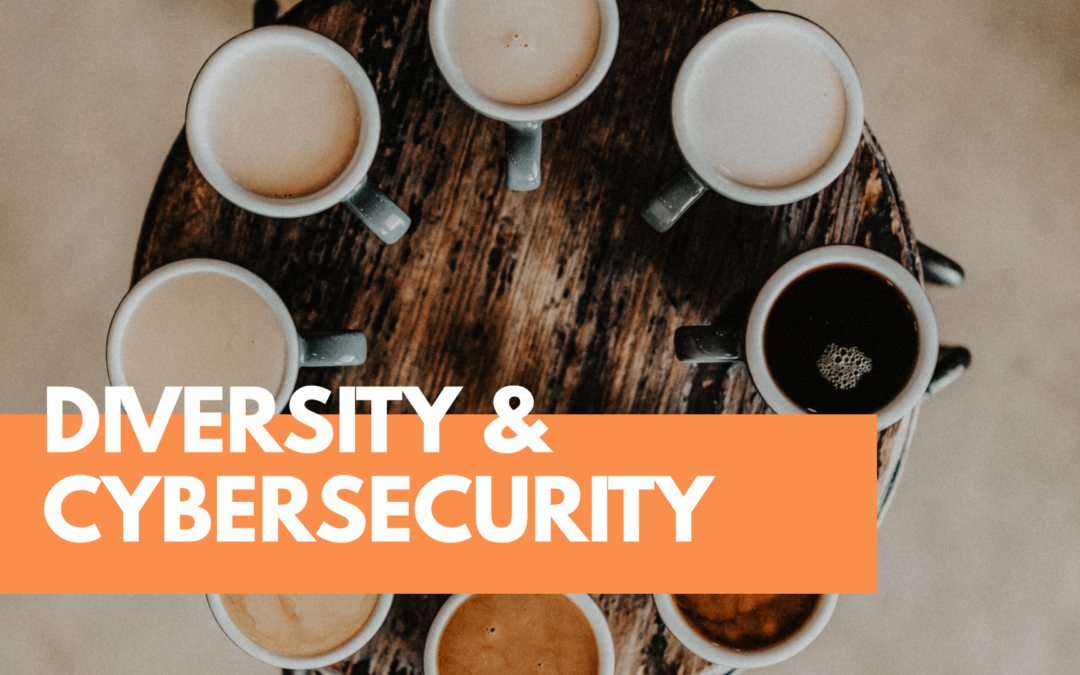As noted by Camille Stewart, former senior advisor for cyber policy at the Department of Homeland Security, social issues and technological issues are intrinsically intertwined. An advanced cybersecurity workforce needs to be as diverse as the people it exists to protect. Currently, systemic racism, sexism, and the outward image that technology and particularly support functions are the realm of the middle-class straight white guy prevents many people from moving into the world of cybersecurity, even if they have the talent, integrity, and the skills for it. But are things starting to change?
Filling the Gap
One of the most important reasons to encourage folks from all backgrounds into technology is that there is a gap which sorely needs filling with talented individuals. Global cybersecurity has never been more essential. Companies are at risk from cybercrimes such as ransomware, crypto mining, and an avalanche of digital misinformation. Failing to spot talent simply because the individual is BIPOC, a woman, or from the LGBT+ community is not only morally wrong, it’s a poor business decision as it’s cutting the potential workforce down by a considerable percentage.
Beyond the simple requirement for more people fixing cybersecurity problems, companies need to be more diverse in how they fix these problems. Having a group made up of the same type of voices will only ever give you solutions from a particular mindset. People from different cultures and backgrounds have a range of life experiences that they can draw on to develop unique solutions to SMB and enterprise cybersecurity issues.
Diversity in Cybersecurity Today
A recent Crest report shows that 59% of women currently working in cybersecurity state that they have experienced challenges and obstacles purely because they were women. Considering only 11% of the cybersecurity workforce is currently made up of women, that’s a depressing statistic.
Another unfortunate statistic is that according to the current American Labor Force Characteristics, only 16.6% of the information security analyst workforce is black. Only 12.9% are Hispanic or Latino. This is disproportionately low, considering around 18% of the American population is Hispanic or Latino.
It does seem as if things are improving. Only a few years ago, the percentage of black people in cybersecurity was languishing around 3%. Hopefully, that shows that companies realize the benefits of opening up doors to people from all backgrounds. Challenging workplace behaviors such as sexism, gendered or homophobic language, casual racism and micro-aggression, and elitism can make a huge difference. Making the workplace more welcoming to all will have a huge benefit in both encouraging top talent from all walks of life and boosting a company’s reputation.
Changing and Challenging the Status Quo
It’s clear that when it comes to diversity in cybersecurity, there are improvements still necessary to make it a much more inclusive industry. So, how can we change things? Port53 is proud to have already made some positive steps.
Port53 runs a gateway program allowing individuals with no prior experience to break into the competitive world of technology and cybersecurity. This three-month internship can provide people from all cultures and backgrounds with the vital experience they need to progress in their desired career. Can we do better? Of course. All enterprise security companies should be taking a deeper look at the people who are reaching out for those opportunities. This helps ensure that it’s not just the same type of people receiving those chances every time.
I am the son of an immigrant and no stranger to the challenges that this can bring. My father was keen to provide accessible education for all, and I am now helping this vision become a reality in my home state of California. Our recent partnership with Devices for Students has helped lend some balance to the Californian education system during the school closures. The sad fact is that many underprivileged families can’t afford a computer for the home, leaving students isolated and unable to carry out home learning. Poverty can take opportunities away from children and young people because outside of the school environment, their resources are so much more limited. Port53 helped Devices for Students deliver 53 laptops to help children continue their education and stay connected to the things that matter.
For women in tech, more mentors and ambassadors are vital. The passion for technology needs to be sparked as young as possible, with peer to peer learning, hands-on projects, and women role models for girls. Cybersecurity companies need to ensure that they are shouting about the successes of the women in their company as much as those of the men. This provides good news stories for women wanting to make their own career in the industry.
It’s a long road to achieving a truly diverse workforce with equal opportunities for all that put in the time and effort. We at Port53 are pleased to be walking that road and keeping our eyes open for more opportunities to improve along the way. Diversity is the key to the best security possible. It helps keep businesses safe from all sorts of threats whilst opening doors for the underprivileged.


Recent Comments